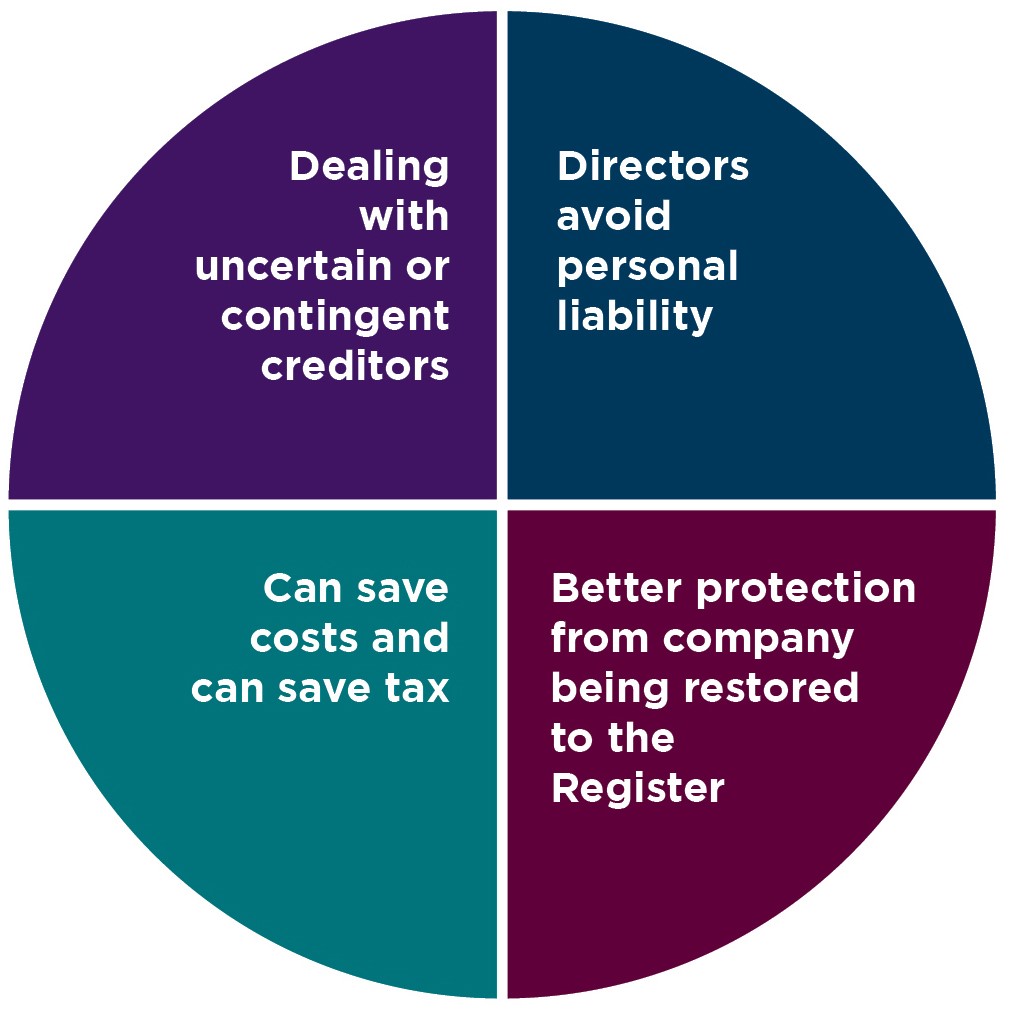We often use medical analogies when describing restructuring procedures.
Undertaking a corporate simplification project or ‘group detox’ offers the corporate equivalent of a diet and lifestyle change, cleansing unnecessary and unwanted group companies and creating a streamlined and more efficient structure going forward.
A group can save significant cumulative annual compliance costs which only otherwise serve to absorb management resources. The cost of a simplification project can be offset by these savings in as little as a year.
We engaged Johnston Carmichael to help us to simplify our group structure. Their trusted advice means our finance and legal teams have the breathing space they need to focus on what is important.
Sandy Grant
Group Finance Director, Tulloch Homes
Corporate group structures can be simplified by dissolving companies that are no longer needed. These would include dormant companies, or SPVs where the special purpose has been fulfilled and are no longer required, or uneconomic or underperforming subsidiaries.
This can be achieved by using the solvent liquidation process known as a Members' Voluntary Liquidation (MVL). Solvent companies with contingent or uncertain liabilities can be closed using the MVL process.
Acquisitive groups - beware of ‘unknown unknowns’
When a group has acquired multiple companies over time through share purchases, notwithstanding the potential hive-up of the underlying business and assets, there is always the risk of unknown claims arising. These unknowns can best be categorised as:
- Known knowns – things we know we know
- Known unknowns – we know there are things we don’t know; and of most concern
- Unknown unknowns – things we don’t know we don’t know
When it comes to your business, don’t take the risk.
Other benefits of using an MVL
Closing a solvent company down using an MVL can offer a number of benefits including:

Other solutions
When an MVL is not an appropriate option there are number of other solutions available:
Creditors Voluntary Liquidations (CVLs)
Creditors Voluntary Liquidations (CVLs) – where a subsidiary is losing money and potentially insolvent it may be necessary to consider a CVL where creditors cannot be paid in full. A liquidator takes control of the process and stems any further cash losses to the wider group. We would also provide tax advice to ensure there is no prejudice to tax losses previously surrendered or still available for group surrender.
Strike off
Although in most cases we believe an MVL is the better solution to close down a solvent company it is often the case where there is no risk whatsoever that a straight strike off might be possible and can be a cost effective alternative.
De-mergers
We have significant experience of assisting clients restructuring their businesses, using a s110 liquidation process to make the separation of business and assets extremely tax efficient. This is often used to split family businesses contained in a single legal entity or where one company has multiple business operating with different commercial risks. Our tax team will work closely with your legal advisers to restructure assets and shareholdings on a bespoke basis
How we can help
The Restructuring team at Johnston Carmichael are here to bring a fresh approach to your business. We invest time to really understand your business and your goals.
Get in touch with me (Donald McNaught), my colleague Richard Bathgate, or another member of our Restructuring team to find out more about how we can help you streamline your business.
View our other services
Arrange a free consultation with the team now
Have a general enquiry? Get in touch.
